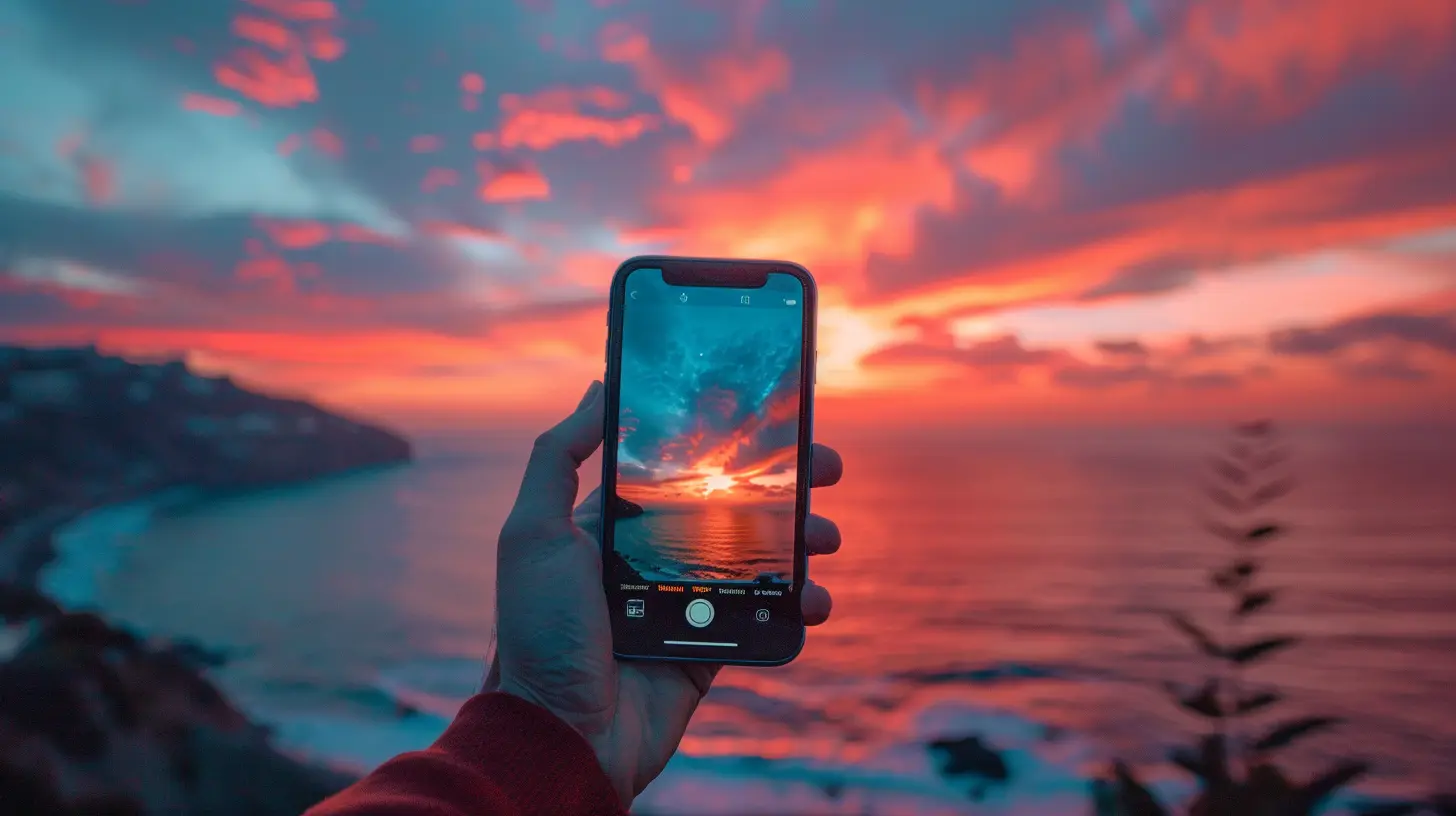How to Safeguard Your Digital Identity While Traveling
5 November 2025
Traveling is an exciting adventure, but it also exposes you to unique cybersecurity risks. With the increasing reliance on digital devices, hackers and cybercriminals are always on the lookout for vulnerable travelers. From public Wi-Fi threats to data breaches, your online identity is at risk the moment you step out of your comfort zone.
So, how can you protect yourself and your personal information while exploring new places? In this guide, we’ll walk you through essential strategies to safeguard your digital identity while traveling.

Why Is Digital Security Crucial While Traveling?
When you're on the road, your internet connection is often unpredictable, and you rely heavily on public networks. Airports, cafes, and hotels offer free Wi-Fi, but these networks are playgrounds for cybercriminals looking to steal sensitive information.Imagine landing in your dream destination only to realize your bank account has been drained because someone intercepted your login credentials. Scary, right? That’s why taking digital security seriously is just as important as booking your flights or packing your bags.

Essential Steps to Protect Your Digital Identity
1. Use a Virtual Private Network (VPN)
One of the easiest ways to secure your internet connection is by using a VPN. A VPN encrypts your data, making it nearly impossible for hackers to intercept your personal details.- Always connect to a trusted VPN before using public Wi-Fi.
- Choose a reputable paid VPN service instead of free options that may collect your data.
- Enable the VPN on all your devices, including your phone, tablet, and laptop.
2. Avoid Public Wi-Fi (Unless Absolutely Necessary)
Public Wi-Fi is a hacker’s paradise. Cybercriminals often set up fake Wi-Fi networks that look authentic to steal personal information.- If you must use public Wi-Fi, don’t log in to banking apps or enter sensitive credentials.
- Forget the network once you're done to prevent automatic connections in the future.
- Use your mobile data or a portable hotspot for safer browsing.
3. Enable Two-Factor Authentication (2FA)
Two-Factor Authentication (2FA) adds an extra layer of security to your accounts. Even if someone steals your password, they won’t be able to access your account without the second verification step.- Activate 2FA on your email, banking apps, and social media accounts.
- Use an authentication app like Google Authenticator instead of SMS-based authentication when possible.
4. Keep Your Devices Updated
Operating system and application updates often include security patches that protect your device from vulnerabilities. Cybercriminals exploit outdated software to gain unauthorized access.- Turn on automatic updates to ensure your device is always secure.
- Update your browser and antivirus software regularly.
5. Beware of Shoulder Surfing
Cybercriminals don’t just rely on hacking; some simply watch over your shoulder as you enter passwords or PINs.- Cover your screen when entering sensitive information in public places.
- Be cautious while using ATMs or typing passwords in crowded areas.
6. Use Strong, Unique Passwords
Reusing passwords across multiple accounts is like using the same key for all your locks—risky and dangerous.- Create strong, unique passwords for each account.
- Use a password manager to store and generate complex passwords.
- Never save passwords on public or shared computers.
7. Turn Off Bluetooth and Auto-Connect Features
Leaving your Bluetooth and auto-connect features on can expose you to hackers who exploit open connections to access your device.- Disable Bluetooth when it's not in use.
- Prevent devices from automatically connecting to unfamiliar Wi-Fi networks.
8. Secure Your Email and Social Media Accounts
Email is often the gateway to many of your online accounts. If a hacker gains access, they can reset your passwords and take control of your digital life.- Log out of social media and email accounts when using shared or public computers.
- Be cautious of phishing emails or messages that request login credentials.
9. Back Up Your Data Regularly
Losing your device while traveling is bad enough, but losing all your valuable data is even worse.- Use cloud storage or an external hard drive to back up important files.
- Enable automatic cloud backups for your photos and documents.
10. Lock Your Devices with Strong Security Features
A lost or stolen device can give cybercriminals direct access to your personal data.- Use biometric authentication (fingerprint or facial recognition) when possible.
- Set up a strong PIN or password lock on all devices.
- Enable remote wipe features so you can erase data remotely if your device is lost or stolen.

What to Do If Your Digital Identity Is Compromised While Traveling?
Even with all precautions, things can still go wrong. If you suspect that your digital identity has been compromised, act fast.1. Change Your Passwords Immediately
If you notice suspicious activity, update your passwords for all critical accounts, especially banking and email.2. Notify Your Bank and Credit Card Providers
If your financial details have been exposed, inform your bank immediately to prevent unauthorized transactions.3. Enable Account Recovery Options
Make sure you’ve set up recovery email addresses and phone numbers to regain access to your accounts if necessary.4. Scan Your Devices for Malware
Run a full virus scan to detect and remove any malicious software that may have been installed.5. Monitor Your Accounts for Unusual Activity
Regularly check your banking statements and email logs to spot any unauthorized access.
Final Thoughts
Your digital identity is just as important as your physical belongings when traveling. While you take precautions to keep your passport and money safe, you should also protect your online data. A little preparation can go a long way in preventing cyber threats and ensuring a hassle-free trip.By following these simple yet effective security measures, you can enjoy your travels without worrying about digital threats. Safe travels and stay cyber-savvy!
all images in this post were generated using AI tools
Category:
Travel SafetyAuthor:

Reed McFadden
Discussion
rate this article
1 comments
Aisha Hines
Great tips! Using a VPN and minimizing public Wi-Fi usage can really help protect your digital identity while traveling. Safe travels!
November 6, 2025 at 6:00 AM

Reed McFadden
Thank you! I'm glad you found the tips helpful. Safe travels and stay secure!


